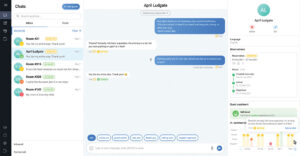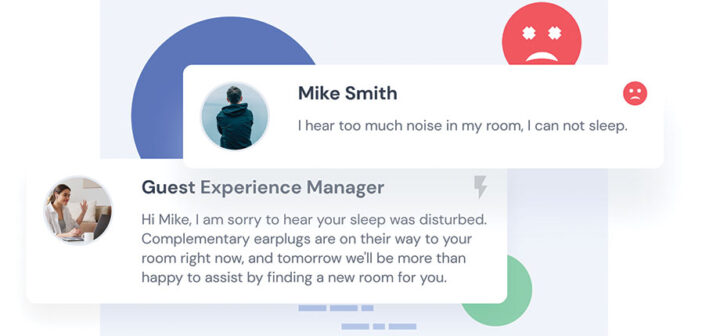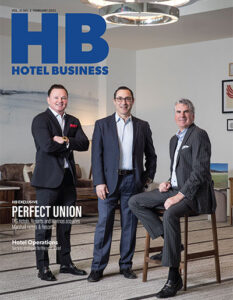Dealing with people would be a lot easier if you could read their minds to know exactly what they are thinking or feeling. If they are in a bad mood, you would know to be very selective with what you say, while a good mood would mean it is a great time to ask for a favor.
EasyWay, a contactless guest-journey platform for hotels, has released a new guest sentiment feature that it says will make it easier to track guests’ emotions to improve their experience—and gain revenue.

EasyWay Guest Sentiment uses AI to detect and track guests’ feelings and emotions by analyzing the words, phrases and emojis used within messages throughout the guest journey.
EasyWay Guest Sentiment uses machine learning to detect and track guests’ feelings and emotions by analyzing the words, phrases and emojis used within messages throughout the guest journey. The multilingual tool works across a variety of direct messaging channels including SMS, WhatsApp and Facebook Messenger.
Every message received from guests is assessed, providing hotel staff with a real-time snapshot of their mood. Using AI, the system can identify the most appropriate response to match customer sentiment and respond in real-time.
“You can learn a lot from text communication—more so than in emails, where it is very restricted and not in real time,” said Roy Friedman, CEO/cofounder, EasyWay. “The system basically analyzes the text and gives an understanding of what the guest’s mood is. So, for example, if we see that someone by his digital footprint is super happy—sending a lot of smiley emojis and other commonly used phrases—it can trigger automatic responses that are predetermined.”
These automatic responses might include a link to share their experience on social media. “The guest journey platform can also identify potential brand ambassadors, connecting directly to social media pages or Tripadvisor to encourage guests to share their positive experiences,” he said. “We might suggest more upselling offers because we know that when people are happy, they’re more likely to accept those offers.”
The system begins working once guests have booked their stay, whether directly or through an OTA. “The system tracks guest sentiment throughout the guest journey, identifying when to change tact to avoid overwhelming or harassing guests with too many messages,” he said.
When the sentiment seems negative, the platform also alerts staff so the guest can be promptly addressed by the most appropriate staff member. “If guests have a really bad experience, [other]reputation managers are sending them an email after they have left [the hotel]and it is no longer relevant to what is going on in their world,” said Friedman. “They have already had this frustration, it’s a reminder to them to leave a bad review on Tripadvisor or other social media.”
He said that the real-time approach of EasyWay can give the hotel a chance to turn the negative experience into a positive. “If you take the messaging and analyze it constantly by AI, you can give a response that can improve things. If a guest has a really bad experience at a hotel, instead of the hotel trying to figure out later on what happened, now in real time, it will dedicate a manager to come and solve your problem. Preparing before the damage is done is gold.”
The platform is automatically adjusted to each guest, choosing the app that is most popular in his or her country of origin. Messaging is also done in the guest’s native language. “If a Japanese guest is traveling to Madrid, and he has no way to communicate, he can communicate in Japanese via his most-used messaging app and still communicate with the hotel,” he said. “We are using AI with the automatic answers. He will get the automatic message in his own language, which enriches his entire experience.”
The AI will also personalize offers to each guest. “Guests coming for their honeymoon will get different offers than those coming for business,” said Friedman. “Prior to their arrival, it will ask if they have any preferences for the minibar. The idea is to always know the guests they are communicating with and to make their experience better—and to increase the chances for them to engage with the hotel and spend more, which happens when you give them relevant offers.”
The system only looks at messages between guests and the hotel, avoiding any privacy concerns. “We don’t use any data from those messaging apps,” he said. “We are not doing anything that the guest does not want.”
With the current environment for hospitality—from fewer staff, lower occupancy and the closure of some amenities—hotels need every advantage they can get when it comes to generating revenue—and Friedman said that hotels using EasyWay have seen that. “One of our hotels saw an immediate increase in revenue per available guests…with a total revenue impact of more than 2%,” he said. “That is with just 35% of the phone numbers, so it is not even contacting all of the guests. This system has a tremendous impact on the bottom line. That is why when we look at ourselves, it’s a revenue generation platform.”



